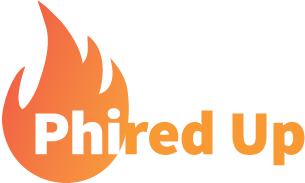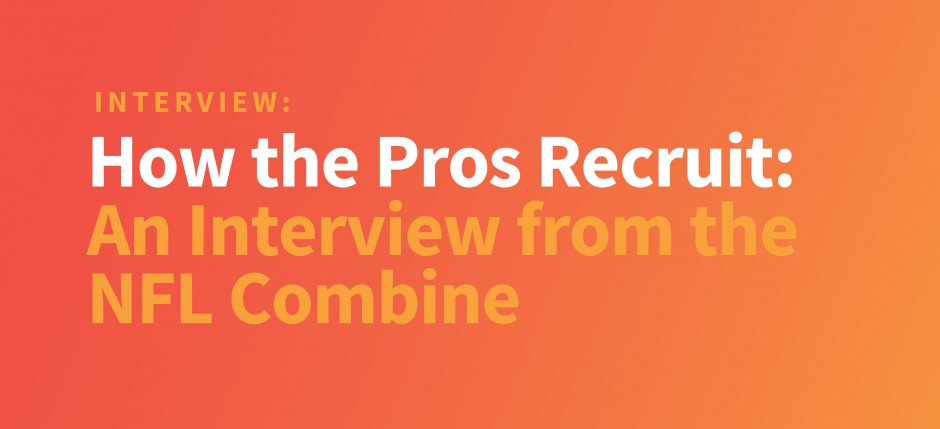How the Pros Recruit: An Interview from the NFL Combine
by Matt Farrell
The National Football League is a multi-billion dollar organization reaching audiences worldwide.
Despite all that revenue, the average player’s career is only 3.3 years according to the NFL Players Association. The NFL relies on continually bringing in top talent.
Their biggest recruitment week of the year is called the NFL Scouting Combine. Top scouts, players, and executives fly to Indy and most stay at the same hotel that hosts AFLV Central.
It’s chaos, it’s distractions, but above all, it’s recruitment.
I wanted to learn from the best, and imagine you do, too. So I did the most logical thing: I strolled into the JW Marriott Friday afternoon, plopped myself at the hotel bar, and I searched for a scout to talk to me.
I found a Bud Light-wielding taker willing to go off the record (I blame Roger Goodell).
Matt: I work with college orgs in recruitment. You’re essentially recruiting the same age group. What would you say sets the NFL’s recruitment process apart from average organizations?
Anonymous Scout: The level of how holistically we look at who we’re evaluating. Most organizations are looking for fit, whether skill set or technical fit. We’re going as deep as we possibly can. Where they come from, how they were raised, how we expect them to interact with our front office just as much as their peers.
We can change position and teach the playbook, but we can’t influence those things. Obviously you have to meet the baseline of tangible skills: I’m not gonna put you at left guard if you’re 190 pounds. But the level we go beyond the skills and fit here would surprise almost anybody.
MF: Some people view the NFL draft as “recruitment day.” This event is different. What makes it different?
AS: The Combine is wide open. As a scout, this is the dream because we can meet everybody we want to and take some of the luck out of the draft.
Coming into the draft you have your ideal roles and ideal picks, but at the end of the day you have no idea what the other 31 teams are gonna do. Fans love it for that reason but it’s also very restricting in terms of what you can control. Everybody has a plan until they get punched in the face.
We really like the open season feel of the combine and how it sets us up beyond the draft. There’s so much relationship building that happens here.
MF: Relationship building…sounds familiar. How do analytics fit in?
AS: It’s hard to believe it was really only a few years ago where analytics became such a mainstream word. Back then, using the technology alone gave you a massive edge, now everyone’s just trying to keep up. A lot of guys here are old school and have seen their jobs change a ton since analytics. Obviously we’re using technology to help us 1) give ourselves every advantage we can and 2) run our process as efficiently as possible.
The term analytics is broad and all-encompassing. You could be the National Football League or a mom and pop shop shop on Main Street and you still need it. But the word alone doesn’t tell you much anymore. My biggest thing is, you gotta figure out how it fits in your system. It’s important to understand how the analytics fit in the context of your system and what you’re trying to do.
MF: How do you block out the distractions of this massive event?
AS: At the end of the day the National Football League is a business unlike any other. We have to put in perspective everything going on here. It’s a big event, it’s on TV. People talking about things like hand size. Our job really is to cut through the noise and focus on what matters. You’re learning about these players, their story, making sure they know yours and how they fit in. That relationship piece is everything. You could have another Tom Brady or Aaron Rodgers here, but you have to use this time to make sure the relationship is there. If he doesn’t respond, or have the relationship with your coaching staff, that talent is going to be wasted or you’re not gonna lock them down long term.
This is the hard part about our job. You have to not only find players who fit into your scheme, the talent level at the position- you need guys who are well rounded, with a good head on their shoulders.
MF: Ok, last question. In my industry, I’ve been hearing a ton of frustration about competition. Recruiters going after the same guys and unwilling to compromise. I imagine it’s even worse in the NFL. How do you handle it?
AS: This is gonna surprise you. Obviously there’s certain trade secrets you’re keeping to yourself. But we talk a lot with our competitors. Genuinely talking, not just putting on a poker face. I think that’s one of the biggest misconceptions, that we’re all isolated in competition. Isolation hurts our job and hurts our league.
Every team is at a different stage of development. We all know the Chiefs aren’t gonna be drafting a QB in the first round this year. But it goes a level deeper than that. It’s like any other business. Things are shared, things are said. Building up trust with other scouts helps your team just as much as theirs.
When you’re on an island here the event is a lot less productive and enjoyable as a whole. Plus, there’s the bonus incentive of helping as many of these kids here take a big step in their career. You help a kid out, he goes somewhere else, there’s no telling he won’t end up helping you someday. This event can make our break someone’s career and we want the right athletes in our league.
Let’s just say a lot of stuff is being passed around in Indy this week.

